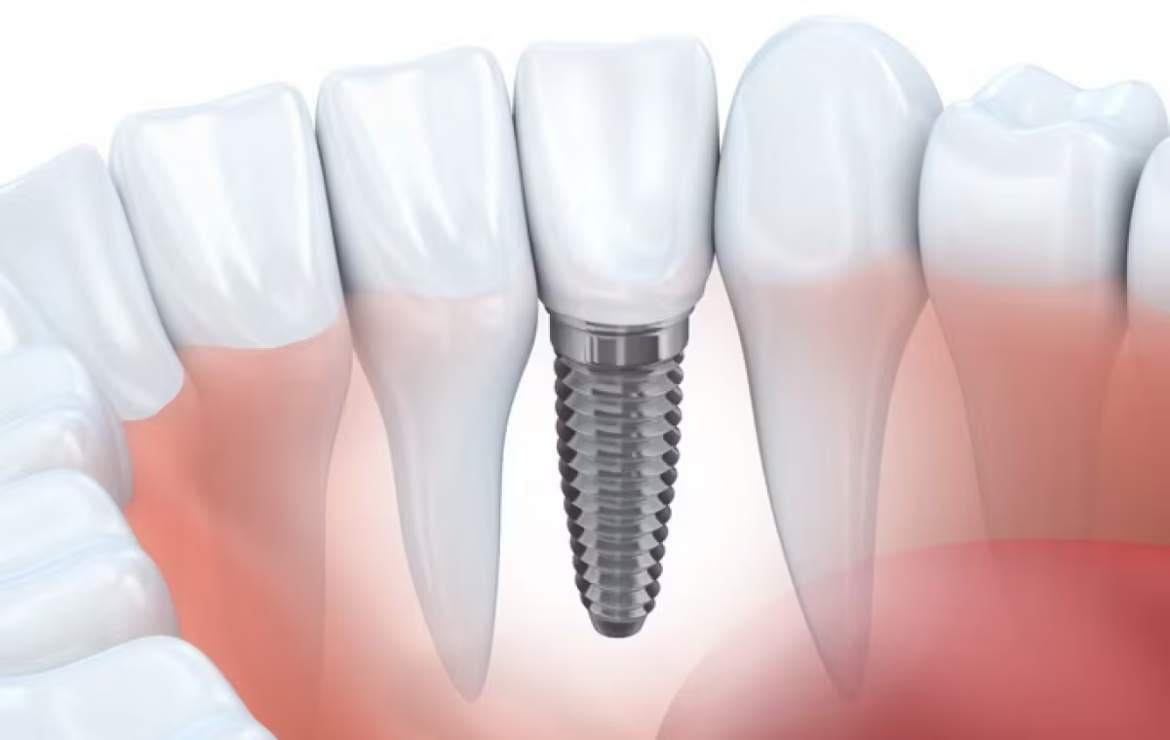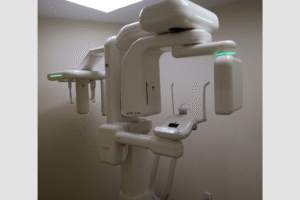Are Dental Implants a Permanent Solution for Missing Teeth? The Facts You Need to Know

Are Dental Implants a Permanent Solution for Missing Teeth? The Facts You Need to Know
Living with a missing tooth, or even multiple missing teeth, can be a source of frustration and embarrassment. A gap in your smile can make you self-conscious, affect how you speak, and make it difficult to chew the foods you love. As you start exploring your options, you’ve likely heard a lot about dental implants. But a big question remains: Are dental implants a permanent solution for missing teeth? The simple answer is yes, but to truly understand why, it’s helpful to know the facts about how they work, the procedure involved, and what makes them such a reliable, long-term choice.
This guide will provide a clear, in-depth look at dental implants, helping you separate the facts from the myths so you can make an informed decision about restoring your smile.
Understanding Why Dental Implants Are So Permanent
What makes dental implants different from other solutions like dentures or bridges? The key lies in their unique design and the incredible biological process that takes place after placement. A dental implant is not just a replacement tooth; it’s a replacement tooth root. It’s a small, titanium post that is surgically placed into your jawbone.
Over time, your jawbone will naturally grow around the titanium post in a process called osseointegration. Essentially, the implant becomes a permanent part of your jawbone, just like a natural tooth root. This fusion is what makes dental implants so incredibly stable and durable. Unlike dentures, which sit on the gums and can slip, or bridges, which rely on adjacent teeth for support, dental implants are a truly permanent solution for missing teeth because they are anchored directly into your bone. This biological bond is what provides the strength and stability to function just like your natural teeth for a lifetime.
The Step-by-Step Dental Implant Procedure Explained
While the idea of dental implant surgery may sound daunting, the dental implant procedure is a well-planned and highly successful process. Your comfort and safety are the top priorities throughout the entire journey. Here is a step-by-step breakdown of what you can expect during the dental implant process.
Step 1: The Initial Consultation and Planning
The journey begins with a comprehensive consultation. Your dental implant dentist will conduct a thorough examination of your mouth, jawbone, and overall oral health. Using advanced technology like 3D imaging, they will create a precise map of your jawbone to determine the best possible location for your dental implants. This meticulous planning is crucial for ensuring the success of your procedure and a beautiful final result. This is also your opportunity to ask questions about the dental implant cost and express any concerns you may have.
Step 2: The Dental Implant Surgery
Once the planning is complete, the surgical phase begins. Your dentist will administer a local anesthetic to ensure you are completely comfortable and feel no pain during the dental implant surgery. In some cases, sedation may also be used to help you relax. The surgeon will make a small incision in your gums to access the jawbone, and the titanium implant post will be carefully placed. The incision is then closed with a few stitches. The entire surgical procedure is a straightforward and routine process, often completed in a single visit.
Step 3: Healing and Osseointegration
After the initial surgery, a crucial healing period begins. Over the next several months, the implant will fuse with the jawbone. This osseointegration is the most important part of the dental implant process and is what gives the implant its incredible stability. During this time, you’ll be able to wear a temporary crown or denture to maintain your smile. Your dentist will monitor your healing to ensure the implant is integrating properly with the bone.
Step 4: The Final Tooth Restoration
Once the implant has fully fused with your jawbone, you will return to the office for the final stage of your treatment. The dentist will place a small connector, called an abutment, onto the implant. This abutment serves as the base for your new tooth. A custom-made crown, designed to perfectly match the color, shape, and size of your other teeth, will be attached to the abutment. The result is a seamless, natural-looking tooth that is a permanent solution for missing teeth.
Demystifying Dental Implant Cost: What You Need to Know
When considering dental implants, it’s natural to have questions about the dental implant cost. It’s important to view dental implants as an investment in your long-term health and quality of life, rather than just a simple expense. The final cost can vary depending on several factors. These may include the number of implants you need, whether you require any preparatory procedures like a bone graft, the type of crown material used, and the location of your treatment.
While the initial cost may seem higher than other options, dental implants are a permanent solution for missing teeth that can last a lifetime with proper care. Unlike dentures or bridges, which may need to be replaced or repaired every 5 to 10 years, dental implants eliminate these recurring costs. This makes them a more cost-effective choice over the long run. Many clinics also offer flexible payment options and can help you work with your insurance provider to make the process more affordable.
Key Advantages of a Permanent Solution
Choosing dental implants has numerous benefits beyond simply filling a gap in your smile. They are the only tooth replacement option that provides a true permanent solution for missing teeth and offers a host of other advantages:
- Improved Chewing and Speech: Because they are anchored in your jaw, dental implants function exactly like natural teeth, allowing you to eat all your favorite foods without worry and speak with complete clarity.
- Bone Preservation: When a tooth is missing, the jawbone underneath begins to deteriorate. Dental implants stimulate the jawbone, preventing this loss and maintaining the structural integrity of your face.
- Enhanced Confidence: Having a full, beautiful smile can dramatically boost your self-esteem and confidence in social and professional settings.
- No Impact on Other Teeth: Unlike a traditional bridge, dental implants do not require grinding down adjacent teeth for support, preserving the health and strength of your natural teeth.
Choosing the Right Dental Implant Dentist
The success of your dental implant journey depends heavily on the skill and experience of your dental implant dentist. It’s crucial to choose a professional who has extensive experience in the dental implant procedure and a deep understanding of the aesthetics involved. A good dental implant dentist will prioritize your comfort and safety, use the latest technology, and provide a clear, honest assessment of your treatment options. They will be with you every step of the way, from your initial consultation to your final restoration.
Who Is a Good Candidate for Dental Implants?
Most adults who are in good general health and have a healthy jawbone are good candidates for dental implants. However, the only way to know for sure is to have a professional consultation. Your dentist will assess your jawbone density and overall oral health to determine if you are a good candidate for dental implant surgery. Even if you have bone loss, modern techniques like bone grafting can often make you eligible for implants.
Common Questions About Dental Implants
- Is the dental implant procedure painful?
The dental implant procedure is performed under local anesthesia, so you will feel no pain during the surgery. Post-procedure discomfort is typically minimal and can be managed with over-the-counter pain medication. - How long does the dental implant process take?
The dental implant process can take several months. This is because the implant needs time to fully integrate with the jawbone. The full timeline is planned out during your initial consultation. - How do I care for my dental implants?
Caring for your dental implants is just like caring for your natural teeth. Regular brushing, flossing, and routine dental checkups are all you need to maintain them. - How long will my dental implants last?
With proper care and good oral hygiene, dental implants can last a lifetime, which is why they are considered a permanent solution.
Conclusion: A Lasting Investment in Your Smile
If you are looking for a reliable, long-term solution to restore a missing tooth, dental implants are the gold standard. They are a safe and effective way to not only fill a gap in your smile but also to restore your ability to eat and speak with confidence and preserve the health of your jawbone. The dental implant procedure is a well-tested and highly successful process.
Take the first step toward a complete smile by scheduling a dental implant consultation with a trusted specialist for dental implants in Gandhinagar.










